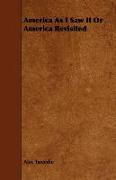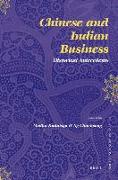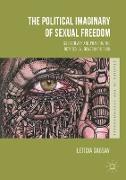America as I Saw It or America Revisited
BücherAngebote / Angebote:
PREFACE WHAT am I to say to precede this cubist- impression picture of a great country Odd notes at odd moments, often made at lightning speed, and under all sorts of circumstances and conditions, lie herein. If you write about America and dont lay eulogy on with a spoon you will never be able to set foot in the United States of America again, they wil hate you so, said a friend. I dont believe it. Americans are older and wiser and kinder nowadays, and will accept the good, and the bad, and the honesty of both, I feel sure. My first visit to the United States was in 1900- 1901, on my way to Mexico to write Mexico as I Saw It, which has run into many editions since then. It appeared at five dollars, with three hundred illustrations, and is now brought up to date, and published in abridged form at twenty-five cents. Cheap sales of goods generally mean deterioration but cheap editions of books luckily denote the popularity of the originals. My second visit to America was in the winter of 1904, when a telegram received in Chicago from Ex-President General Diaz invited me to return to Mexico for his seventh election. It was then I commenced Porfirio Diaz, the Maker of Modern Mexico. After much persuasion, for he is a strangely reserved man, he supplied diaries, maps, and private letters, and the hook has been translated into other tongues. In the autumn of 1912, I crossed the Atlantic again- this time on pleasure bent, and to have a holiday and a good time generally after completing my thirteenth book, entitled Thirteen Years of a Busy Womans Life, which in a few months was in its fourth edition. The New York Times then asked me for a series of articles on America. I refused, for America has been hypersensitive and antagonistic even to friendly criticisms but, on consideration, I accepted the compliment, and when the publishers wished these articles enlarged for a book, finally arranged with the Macmillan Company of New York to write America as I Saw It. . , , One day four months later a woman came into my cabin off Brazil, at Easter, 1913, and asked to see a book in the making. The manuscript was unearthed from under the pillows which acted as paper-weights on the sofa, and as the leaves were turned over, she exclaimed, Why, all the paper is different shapes and sizes, and all the pages different types. She was right. It was a mighty untidy production. The first pages, in black letters, I explained, were dictated straight to a machine beside my bed before breakfast in Chicago. This official business-paper was done from shorthand notes by a secretary in Ottawa. The small type on smaller paper was dictated at odd moments to a stenographer in New York, who took her shorthand notes away and duplicated them. These larger pages on thin paper were typed at the British Legation in Buenos Ayres, from manuscript written at sea between New York and the Argentine. Lastly, these purple pages were typed on board the Yandyck between Buenos Ayres and Southampton, from pencil scratchings made at an Argentine ranch in tropical beat in February. These untidy scribblings have been put together from rough notes during forty-nine days voyaging, often on stormy seas. Hence this curious jumble, and now you know how a book should not be written. People who find it difficult to concentrate their thoughts at sea sufficiently to read a book may realise a tiny bit what it means to write one. Twenty-six thousand miles alone, without a maid or a secretary, made writing a hard task. Is it finished she asked. No, not yet...
Folgt in ca. 15 Arbeitstagen




